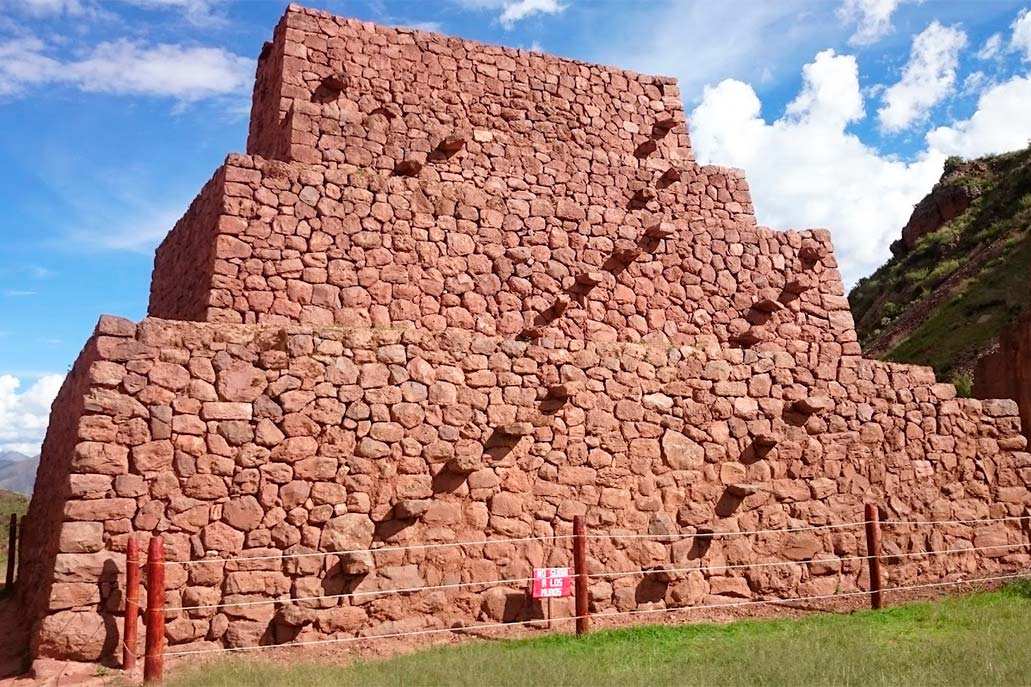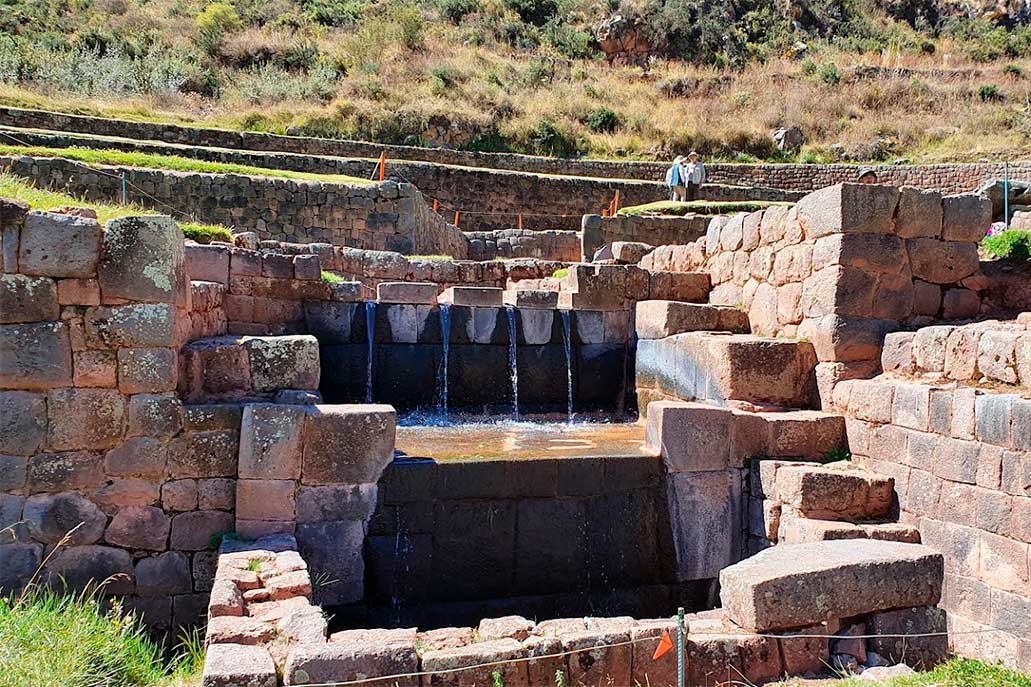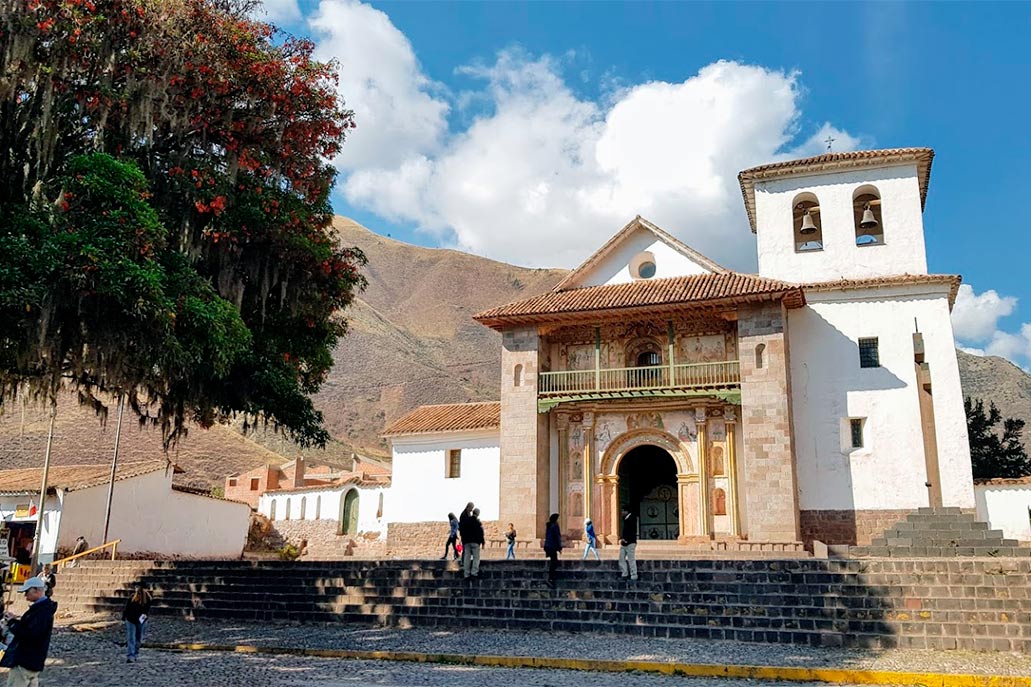What is the South Valley of Cusco? What to visit?
The South Valley of Cusco is the tourist name given to the tourist attractions located southeast of the city of Cusco. The most important are: Tipón, Piquillacta, the church of San Pedro de Andahuaylillas, the Huasao wetlands and its dozens of towns full of history and traditions. These destinations can be visited with an all-inclusive tour or on your own.

Content
The South Valley of Cusco
The South Valley of Cusco is the tourist name that was given to the set of tourist attractions located southeast of the city, between the provinces of Quispicanchis and Canchis.
The most important tourist attractions in the South Valley are: the archaeological site of Tipón, the archaeological site of Piquillacta and the church of San Pedro de Andahuaylillas.
Also in the South Valley you can visit Andean towns with many traditions such as: Huasao, Oropesa, Huaro, Urcos and more. The most famous natural landscapes are: the Huacarpay lagoon, the Pachatusan mountain range, the wetlands de Huasao and the Vilcanota river.
To visit the tourist attractions described, you can make a trip on your own or hire a tour to the ‘South Valley of Cusco’ that include: Tipón, Piquillacta and Andahuaylillas.
Its location
The South Valley of Cusco is in a geographical area made up of towns and natural landscapes located southeast of the city of Cusco. Most of the towns belong to the provinces of Canchis and Quispicanchis.
Tipón, one of the most touristic towns in the South Valley, is located only 25 kilometers by road from the city of Cusco. The archaeological site of Piquillacta is 33 kilometers away and the town of Andahuaylillas is 39 kilometers away.
The archaeological site of Tipón is at 3,560 masl The archaeological site of Piquillacta is at 3,350 masl The town of Andahuaylillas, at 3,122 masl
Tourist attractions to visit

These are the main tourist attractions of the South Valley of Cusco:
- Tipón – This Inca archaeological site was a temple and sacred site where water was worshiped as an element of purification. The enclosure also has gardens, platforms, channels, smaller enclosures, royal enclosures and viewpoints. Entrance to this site is included in the Cusco Tourist Ticket.
- Piquillacta – This archaeological site was an immense city built by the Wari culture, which existed some two hundred years before the Incas. This citadel housed about 10 thousand people. Its adobe enclosures have more than two levels. It is famous for the ‘Rumicolca’. The entrance is also included in the Cusco Tourist Ticket.
- Andahuaylillas Church – In the town of Andahuaylillas the Spanish built one of the most important temples in honor of San Pedro. Because of its beautiful murals and baroque decoration with canvases and pieces in gold leaf, it is called ‘The Sistine Chapel of America’. The entrance ticket can be purchased at the same place.
- The Huasao wetlands – This destination is only 19 kilometers by road from the city of Cusco. It is a recreational center that stands out for its wooden carvings with an environmental message represented in fictional characters such as ‘Ents’, ‘Groot’ and ‘Baby Groot’. The place is inhabited by various species of plants, birds, trees and more.
How to go on your own?
To visit the South Valley on your own it is necessary to take public transport from the city of Cusco. The transportation of the company ‘Saylla – Huasao’ can take you to the villages of the valley for only 2 Peruvian soles.
To enter Tipón and Piquillacta you can buy he Cusco Tourist Ticket whose cost is 70 Peruvian soles. This ticket also includes: the Museum of Contemporary Art, the Regional Historical Museum, the Museum of Popular Art, the Coricancha Site Museum, the Qosqo Center for Native Art and the Monument to Inca Pachacutec.
The Cusco Tourist Ticket can be purchased at: Avenue El Sol 103 (a few steps from the Main Square).
How to go with tours?

Tours to the South Valley of Cusco last half a day and include a visit to: Tipón, Piquillacta and Andahuaylillas. The tour lasts only half a day (5 hours) and has an approximate cost of 50 US dollars. It offers: complete transportation, tickets and tour guide service.
The climate in the South Valley
The South Valley of Cusco has a cold temperate climate with temperatures that vary from a maximum of 23ºC. and a minimum of 3ºC.
The rainy season occurs from November to April, especially in January, February and March. The rest of the year, from May to October is the dry season. In those months the nights are colder but the rains do not occur frequently.
More information
The towns of the South Valley are famous for the delicious Cusco cuisine they offer. Don’t forget to try dishes such as: baked guinea pig, baked pork and fried trout. Also, don’t forget to enjoy the bread from the town of Oropesa.
During your visit to the South Valley of Cusco, do not forget to take with you: comfortable shoes, comfortable and light clothing, hat (or hat), poncho in case of rain, sunscreen, snacks, rehydrating drinks, documents and cash.
By Machupicchu Terra – Last updated, August 28, 2023